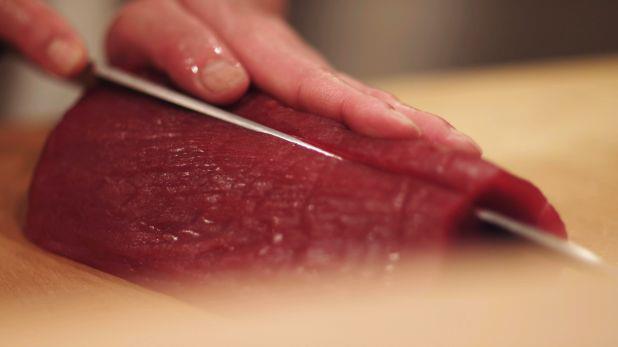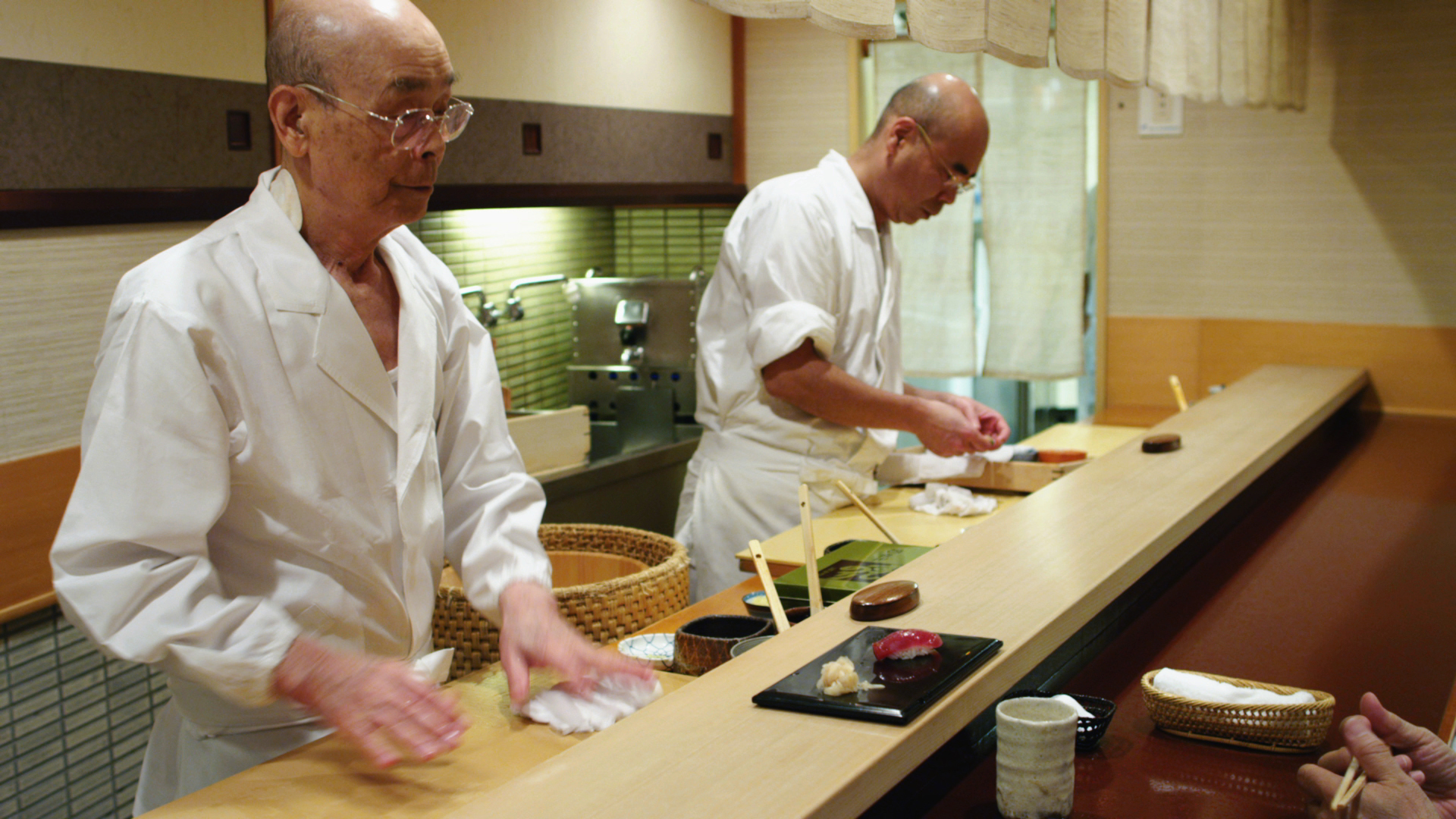 Last week, Sean and I finally sat down together and watched something I’ve been trying to get to for the last few months: Jiro Dreams of Sushi.
Last week, Sean and I finally sat down together and watched something I’ve been trying to get to for the last few months: Jiro Dreams of Sushi.
I realize that this post this being written quite a bit after the rest of the world gave Jiro their attention, but I actually consider it borderline miraculous that I got to it at all. My Netflix queue…er…I mean my “My List” is a confusing, terrifying place. In fact, if not for Sean’s interest and insistence, I’d still be dreaming of Jiro, even now.
So, yes. I’m late to the party. But I’m sincere. And I’m anxious to make sure that no one else falls into this distressing Jiro-free category. If you have not yet seen it, see it. It’s fantastic. (And it’s currently available on Netflix Streaming, AND it’s Friday. So no more excuses. Also, Sean wants to make sushi now.)
JIRO DREAMS OF SUSHI is the story of 85-year-old Jiro Ono, considered by many to be the world’s greatest sushi chef. He is the proprietor of Sukiyabashi Jiro, a 10-seat, sushi-only restaurant inauspiciously located in a Tokyo subway station. Despite its humble appearances, it is the first restaurant of its kind to be awarded a prestigious three-star Michelin Guide rating, and sushi lovers from around the globe make repeated pilgrimage, calling months in advance and shelling out top dollar for a coveted seat at Jiro’s sushi bar.
I loved the technical details. Like the daily excursions to the fish markets; the friendships and trust between Jiro’s son, Yoshikazu, and the various fishmongers, assiduously cultivated over many years; the way in which supply drives Jiro’s menu choices, rather than the other way ’round; the massaging of the squid; the painstaking creation of the tamagoyaki. And, of course, the making of the sushi itself, which I found hypnotic, and surprisingly. Jiro’s hands — shaping and smoothing and offering for our approval. Wonderfully simple, even spare — Jiro, after all, believes that “ultimate simplicity leads to purity.” Yet that simplicity is so rich in tradition, and (if six years worth of Michelin 3-star rankings are any indication) also incredibly rich in flavor.
I loved the respect and devotion Jiro has for his work, and for work in general. And the way he’s fighting to pass that on, in the face of a vast generation of indifference.
But most of all, I found myself loving Yoshikazu. It’s a rare man indeed who willingly embraces the background when his talents so clearly justify the spotlight. And to see him doing it with such good will was truly inspiring. (Happily? That’s a bit harder to say. But that makes me respect him more, not less.)

















